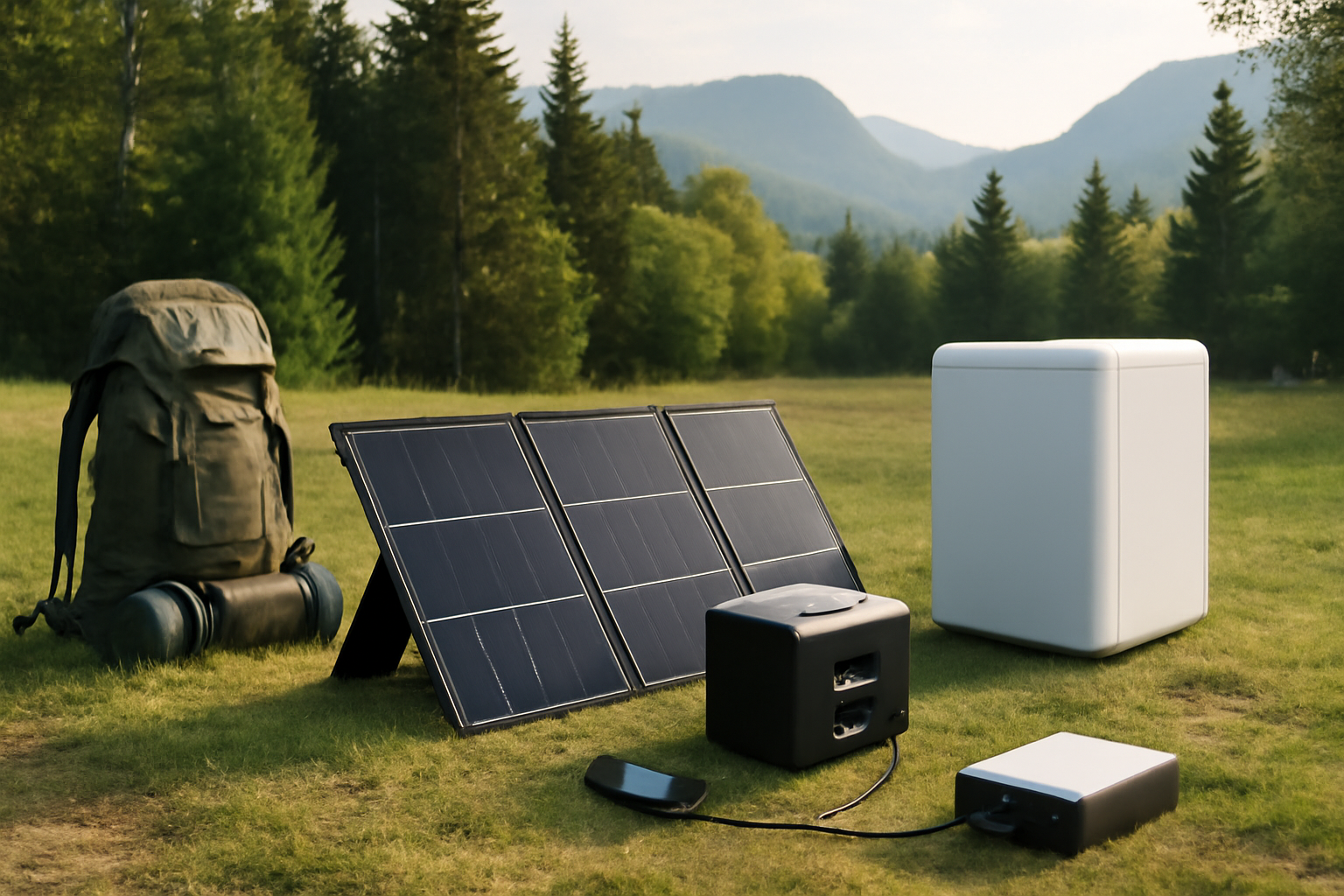LifeStyle
Baby Cone Treats: Fun, Delicious and Perfect for All Ages

A baby cone is a miniature version of the classic ice cream cone, designed to be bite-sized, adorable, and mess-free. These tiny treats are not only popular among kids but are increasingly becoming a trendy addition to parties, dessert tables, and food blogs. They pack all the flavor of a full-sized cone but in a more manageable and fun format.
Why Baby Cones Are Gaining Popularity
Baby cones are quickly becoming a crowd favorite due to their playful presentation and ease of serving. They’re perfect for portion control, and their small size makes them ideal for kids who often leave larger treats half-eaten. Adults love them too because they’re a great way to indulge without overdoing it.
Perfect for Parties and Events
One of the best things about baby cones is how well they fit into any event. From birthday parties and baby showers to weddings and corporate events, these mini treats are a charming addition. You can serve them in holders or arrange them in decorative trays, making your dessert table both colorful and inviting.
Creative Fillings Beyond Ice Cream
While traditional baby cones are filled with ice cream, they can be filled with a wide variety of delicious options. Whipped cream, mousse, chocolate ganache, candy, mini cupcakes, or even savory fillings like cheese spreads can transform them into unique appetizers or desserts. You can even layer fillings to make them more appealing.
DIY Baby Cone at Home
Making baby cones at home is both easy and fun. You can buy mini waffle cones from the store or make your own using a cone mold and cookie dough or pancake batter. Once baked or bought, you just fill them with your choice of filling and top them with sprinkles, nuts, or fruit. Kids especially love helping decorate them.
A Healthier Dessert Option
Believe it or not, baby cones can be a healthier treat alternative. Since they’re smaller in size, they offer built-in portion control. Plus, you can fill them with yogurt, fruit puree, or low-fat ice cream for a nutritious snack. They’re a guilt-free indulgence that doesn’t compromise on taste or fun.
Kid-Friendly and Mess-Free
Children are notorious for making messes with their food, but baby cones help minimize that. Their size is just right for little hands, and the small amount of filling means fewer spills and drips. That makes them perfect for school events, playdates, and family gatherings where keeping things tidy matters.
Cute Presentation Ideas
Presentation is everything when it comes to baby cones. You can dip the edges of the cones in melted chocolate and roll them in colorful sprinkles for an eye-catching effect. Use tiered stands, mini cone holders, or glass jars filled with sugar to hold them upright. Adding a small flag or label can make them even more festive.
Seasonal Baby Cone Recipes
Baby cones can be adapted for any season or holiday. For Halloween, fill them with orange and black candies. During Christmas, add peppermint-flavored mousse or red-and-green toppings. In summer, fresh berries and light yogurt fillings work great. Their versatility makes them a year-round favorite.
Popular Baby Cone Flavors
The most loved baby cone flavors include vanilla, chocolate, strawberry, mint, and cookies & cream. You can even go gourmet with salted caramel, pistachio, or lavender honey. Combining flavors or creating layered mini parfaits inside the cones is another fun twist that guests enjoy.
How to Store Baby Cones
Storage is crucial if you’re making baby cones in advance. Keep the cones in an airtight container to prevent them from getting soggy. If they’re already filled, refrigerate them and cover lightly with plastic wrap. Make sure to add crunchy toppings just before serving to maintain texture.
Allergy-Friendly Variations
You can easily adapt baby cones for different dietary needs. Use gluten-free cones, dairy-free ice cream, or nut-free toppings to cater to allergies. Vegan whipped cream or fruit fillings also work well, allowing everyone at the table to enjoy them without worry.
Affordable and Accessible Treat
One of the biggest perks of baby cones is their cost-effectiveness. A little goes a long way, which means you can serve many people with a modest budget. The ingredients are simple and widely available, and the preparation doesn’t require any fancy equipment.
Tips for Making the Perfect Baby Cone
To ensure your baby cones are a hit, start by choosing quality cones. Avoid overfilling, as this can make them heavy and messy. Chill your fillings before piping them in to help them hold their shape. If you’re using ice cream, serve immediately or store in the freezer until ready to serve.
Fun Activities Involving Baby Cones
Baby cones can also double as a fun activity, especially for kids. Set up a baby cone decorating station with a variety of toppings and fillings. Let everyone build their own creations—it’s interactive, creative, and delicious all at once. This kind of setup is a hit at birthday parties and school functions.
Where to Buy Ready-Made Baby Cones
If making them from scratch isn’t your thing, plenty of bakeries and dessert shops now offer ready-made baby cones. You can also order them online through specialty food retailers or party supply stores. They come in different flavors, colors, and even themed packaging to match your event.
Conclusion
Baby cones are proof that great things come in small packages. These tiny treats combine fun, flavor, and practicality in one adorable package. Whether you’re serving them at a celebration, making them with your kids, or just craving a sweet snack without going overboard, baby cones deliver joy with every bite. Their versatility, affordability, and charm make them a must-try treat that never goes out of style.
FAQs
Can baby cones be made ahead of time?
Yes, but store them in a cool place and fill them shortly before serving to keep them crisp.
Are baby cones suitable for toddlers?
Absolutely! Their size makes them perfect for little hands, and they’re less messy than full-size cones.
Can I use baby cones for savory snacks?
Yes, fill them with cheese, hummus, or other dips for a fun twist on appetizers.
What’s the best way to serve baby cones at a party?
Use cone stands or jars filled with sugar to keep them upright and easy to grab.
Do baby cones melt quickly if filled with ice cream?
Yes, serve them immediately or keep them chilled in the freezer until guests are ready to eat.
LifeStyle
What Every Wardrobe Needs Right Now
There is a mirroring of the unusual climate in the UK, where style is about adaptability and reasonableness. A well-organized closet is essential, one that continually changes between unexpected downpour showers, lively breezes, and uncommon bright spells. The top 7 priority pieces for your essentials hoodie closet will keep you looking a la mode. This essential hoodie uk combines functionality and style, ensuring you’re always dressed appropriately, regardless of the climate. These items will help you navigate the UK’s ever-changing climate with confidence and style, from waterproof outerwear to fashionable options for layering.
Versatile Trench Coat
An overcoat is a timeless item that effortlessly elevates any ensemble. The basics hoodie uk’s quirky climate is perfect for this coat’s sleek and practical design. During those unexpected showers, the water-safe texture keeps you dry, and the lightweight material allows for layering. A fashionable overcoat is an article of apparel. Whether you walk or bike to work, you will use it every day. Everything can be worked out, including using an overcoat’s flexibility. Pair it with a brand-new white shirt and personalized jeans. Wear it with a simple shirt and pants combo if you’re not hiding anything. For a more defined silhouette, you may use a belt to bind the waistline.
Classic Knitwear
Given that it keeps you warm and comfortable during the colder months, knitwear is a must-have item for every UK wardrobe. Texture is important while choosing knitwear. For further protection and delicate quality, choose standard filaments like cashmere or fleece. The basic hoodie UK is perfect for layering because of its breezy yet warm materials. Additionally, look for knitwear with a finer gauge because essential hoodie in the UK will be more flexible and smaller under coverings or jackets. Knitwear is really versatile and goes well with a variety of ensembles. Consider pairing your favorite pair of slacks with a sturdy weave sweater for a carefree end-of-week ensemble. For a look, wear a fine-weave sweater layered over a jacket or coat.
Tailored Trousers
A wardrobe must for both day and night is a pair of tailored pants. The fit of custom pants should be good. It shouldn’t be too tight and should fit comfortably around the hips and midriff. The fix should be long enough to touch the top of your shoes. Essentials hoodie UK If your clothes don’t fit properly, it can be worth going to a designer. Custom-fitted pants have the benefit of being versatile. During the day, shirts with padding and pullovers are popular styles. You can add some bold jewelry and replace the flats with heels for a night out. For a sophisticated look, you may also pair your personalized pants with a jacket or sweater. Every occasion calls for a pair of jeans that fit you well.
Stylish Boots
Exploring the climate, which can be unpredictable and damp, requires a good pair of boots. Look for boots made of water-safe materials, such as elastic or leather. These materials are long-lasting and sturdy in addition to keeping your feet dry. Additionally, consider footwear that have a good grip since essentials hoodies can help you stay consistent on elusive surfaces. Whatever your taste, a trustworthy pair of knee-high boots is essential. Because boots are so versatile, they can be worn throughout the year. For cozy and toasty requirements London in the winter, pair them with thin trousers and thick socks. For a more laid-back look, pair ankle boots with a dress or skirt.
Comfortable Hat
In the UK, an appealing cap is a basic adornment that offers both elegance and practicality. Whether you’re wearing it to shelter yourself from the occasional sun or to combat cold winds, a well-made hat offers comfort all year round. To ensure warmth without overheating, look for caps made of permeable, sensitive materials like fleece or cotton. Plans that can be altered provide a personalized fit, which makes them perfect for daily use. A hat that can easily dress up your basic hoodie UK while still keeping you comfy is a wardrobe staple. Options include a classic beanie, a multipurpose bucket hat, or a beautiful fedora.
Essentials Layering
A key component of UK fashion, especially in light of the country’s windy climate, is layering. The hoodie UK ensures you’re consistently pleasant by allowing you to switch up your daily attire. Add a mid-layer, such as a sweater or pullover, after starting with a base layer, like a shirt or slim weave. Finally, add an outer layer, such as a coat or jacket. The essential hoodies for sale might generate revenue for you. This technique does more than just keep you warm. but also adds depth and interest to your ensemble. Developing your layering skills will help you maintain a stylish and functional closet.
LifeStyle
Quiet Luxury: The Minimalist Fashion Trend Redefining Men’s Style in 2025

Think of Daniel Craig’s James Bond: the suits are so well cut that you notice the man, not the brand. Or a character in a Murakami novel, sipping whiskey in a soft wool sweater that looks like it was made just for him.
Quiet Luxury is all about subtlety and craftsmanship. It’s style that whispers rather than shouts. The kind of elegance that’s felt, not flaunted. It’s less about impressing others, and more about feeling quietly confident in your own skin.
- Fine fabrics (cashmere, merino, silk blends)
- Impeccable tailoring (jackets that drape just right, trousers with the perfect break)
- Muted colors (navy, charcoal, camel, olive)
- Minimal logos—if you know, you know
- Timeless pieces (a perfect white shirt, a soft leather loafer, a cashmere scarf)
Why does Quiet Luxury resonate today? Because in a noisy world, there’s something radically cool about understatement. It says, “I know what I like, and I don’t need applause.” It’s also a nod to sustainability—buying less, but buying better. Pieces that last, both in quality and in style.
There’s a secret handshake among those who recognize, say, Loro Piana cashmere clothes or a perfect suit from MensUSA. It’s about belonging to a club of taste, not trend.
Are “Minimalist” and “Quiet Luxury” the Same?
Minimalism in fashion is about stripping away excess—clean lines, limited color palettes, no unnecessary details. Think of Steve Jobs’ black turtleneck or the simple, sculptural suits of Jil Sander.
On the other hand, Quiet Luxury shares minimalism’s love of restraint, but it adds a secret ingredient: quality that whispers. It’s not just about what you see, but what you feel—fine fabric, expert tailoring, and details only the wearer (or a fellow connoisseur) might notice.
Therefore, all quiet luxury is minimalist, but not all minimalism is quietly luxurious. Quiet luxury is like a whisper of silk lining in a jacket—hidden, but unmistakably special to the one wearing it.
Why Is Quiet Luxury So Resonant Today?
In a world of fast fashion and screaming logos, quiet luxury feels like a deep breath. Logos and obvious brands used to signal wealth or style, but now they can feel a bit… try-hard. Quiet luxury is for those who want to feel good, not just look rich.
People are tired of clothes that fall apart after a few wears or become outdated in a season. When you know your clothes will still look good next year (or next decade), you walk a little taller. Quality pieces last—and that’s better for your wallet and the planet. And, it’s style as a form of self-assurance, rather than seeking approval.
Suits: The Heart of Men’s Quiet Luxury
The suit is the ultimate canvas for quiet luxury—a classic navy or charcoal suit in a beautiful wool, cut just right, is like armor and art at once. It’s the uniform of those who mean business, but also those who appreciate craft.
The Cut: Modern Ease
- Jacket—Slightly relaxed, not too skinny, not too boxy—a gentle silhouette that flatters but never constricts. Think soft shoulders (the Italians call them “spalla camicia”—shirt shoulders) for natural ease.
- Trousers—A comfortable rise and a tailored, gently tapered leg—enough room to move, but never sloppy. A single pleat adds grace and a nod to classic style.
The Fabric: Understated Luxury
- Wool, wool, wool. Super 110s or 120s are sweet spots: smooth, durable, not too precious.
- Color—Navy and charcoal reign supreme for versatility and quiet power. They’re adaptable—formal with a white shirt, creative with pale blue or subtle pattern, and relaxed with a fine-gauge turtleneck.
- Texture—A subtle twill or birdseye weave adds interest without flash.
The Details: Whisper, Don’t Shout
- Lapel—Medium width, slightly peaked or classic notch. Nothing too skinny.
- Buttons—Dark horn or mother-of-pearl—organic, understated.
- Pockets—Flap or jetted—keep it clean.
- Vents—Side vents for movement and a touch of continental flare.
Shirts & Outerwear: The Quiet Supporting Cast
- Shirts—Crisp white for business. Pale blue for softness. Light gray or subtle stripes for variety.
- Outerwear—A single-breasted camel or charcoal overcoat, or a navy mac—timeless, neutral, and fits over your suit without bulking up the lines.
Accessories: The Art of Restraint
- Tie—Understated silk or textured knit, in navy, burgundy, or deep green. No novelty prints.
- Pocket Square—White linen, folded simply. Maybe a subtle navy or gray if you want to whisper a little more personality.
- Shoes—Black or dark brown leather oxfords or derbies. Clean, polished, no ostentatious logos.
- Belt—Leather, slim, matches your shoes. Or skip the belt for a cleaner waistline—especially with side adjusters.
- Watch—Simple, classic face. Leather strap. Heirloom vibes.
A Few Quiet Luxury Staples Beyond the Suit
True quiet luxury is multisensory. The faint scent of good leather, the soft brush of wool, the echo of laughter and low jazz in a warm room, a hint of whisky or cigar smoke curling through the air. That’s not just style—it’s a way of being.
Consider to add to your shopping list the following:
- Navy or gray merino wool crewneck sweater (great over a shirt or under a jacket)
- Fine gauge turtleneck (for that discreet European flair)
- Crisp, heavyweight white T-shirt (for smart-casual)
- Well-fitted dark jeans (minimal distressing)
- Slim chinos in taupe or olive
- Soft cashmere scarf in a neutral tone
Unhurried, grounded, quietly confident. When you wear your suit, let it remind you that comfort and elegance don’t compete; they conspire.
Can You Find Quiet Luxury on a Budget?
- Fabric First
Even affordable brands sometimes offer suits in 100% wool or wool blends. Look for those—synthetics never drape the same way.
- Fit Over Brand
A suit that fits your shoulders and is tailored to your body will look more expensive than any logo ever could. Find a good local tailor; even a modest suit can become a gem with the right tweaks.
- Secondhand & Vintage
Thrift stores, vintage shops, and online platforms (like eBay or Vinted) are treasure troves. Many high-end suits end up barely worn at a fraction of the price. Look for names like Canali, Corneliani, or Brooks Brothers.
- Subtle Details
Quiet luxury means no flashy buttons or wild linings—just well-chosen, simple details. Dark horn buttons, a soft roll to the lapel, pick stitching along the edges.
- Care and Maintenance
Keep it pressed, brush it down, and hang it well. A well-cared-for suit always looks pricier than it is.
Final Needle & Thread
Buy less, choose well, make it last
Quiet luxury is, ultimately, about self-respect and discernment. It’s the confidence of a man who knows that the best things in life don’t need to shout—they just need to last, fit well, and feel right. Anyone—on any budget—can access that spirit, even if it requires a bit of detective work and a tailor’s number in your contacts.
We wish you to find your extraordinary in the understated, and to always dressing for the life you want—quietly, confidently, and with a sense of adventure.
LifeStyle
What Is The Technology Behind Portable Solar Panels: How They Actually Work

With the world moving towards renewable energy, portable solar panels are becoming a very common household term- providing clean, efficient, and portable power to campers, travelers, remote workers, and sustainability enthusiasts. But what is the reality behind how these thin, foldable solar mats work? How do they work, and how dependable are they in contrast to conventional solar arrays? This article will talk about the science and engineering of portable solar panels, go into the cases of their use, discuss the advantages and disadvantages, and cover everything you need to know to make the right decision.
What Are Portable Solar Panels?
Portable solar panels are foldable, lightweight solar power systems that are able to convert sun energy into electricity that can be used on the move. These devices are useful when you are backpacking and hiking in the mountains, tailgating at a football stadium, or even off the grid as they offer a convenient method of charging small electronic devices, battery packs, and in some cases even home appliances. Portable solar power panels are usually constructed of either monocrystalline or polycrystalline solar cells and are available in a wide range of sizes and power ratings, with 10W chargers the size of a pocket through to 300W foldable panels that can be used in a van or as an emergency backup.
What Are Portable Solar Panels?
The operation principle of a portable solar panel is the same as the conventional rooftop solar panels but smaller in size to make them portable. Here is the way they operate:
Photovoltaic Conversion
The core part of any solar panel is photovoltaic (PV) cells. These cells consist of mostly silicon which is a semiconductor. When the sun rays fall on the solar panel surface, photons dislodge electrons off their atoms and this generates a stream of electricity. This is the photo electric effect.
DC Power Generation
PV cells produce direct current (DC) electricity. This current can directly run small loads or can be stored in a portable power station or solar battery to use at a later time.
AC Devices Inversion
A lot of tools and devices work on the alternating current (AC). On these types of devices the DC output is converted to usable AC electricity via an inverter, commonly incorporated in high-end solar generator kits.
Charge Controllers
MPPT (Maximum Power Point Tracking) or PWM (Pulse Width Modulation) charge controllers are frequently added to avoid overcharging and destroy linked batteries. These intelligent units maximize the charging performance alongside protecting the life of your devices.
Portable Solar Panels Types:
Knowledge of the various types of portable solar panels assists you to make the best choice depending on your requirement.
Monocrystalline Panels
These panels are monocrystalline and hence very efficient especially where space is a premium. They are a little more costly and have better performance in low-light situations.
Polycrystalline Panels
They are manufactured by fusing several silicon pieces. Although they are less efficient and thicker than monocrystalline versions, they are cheaper.
Thin-Film Panels
Thin-film panels are lightweight and flexible and finest fitted in ultra-portable requirements. They are however more prone to wear out and are less efficient.
Important Things to Consider in a Portable Solar Panel
When browsing a portable solar panel to go camping, living in a van, or prepare an emergency, consider the following:
- Wattage Output: This will define the speed and the number of devices you can charge.
- Portability: Seek out folding, light-weight ones with carrying handles or cases.
- Durability: Outdoors need waterproof and rugged constructions.
- Connectivity: USB ports, DC out and ability to work with solar generators.
- Efficiency Rating: Try to get panels that have efficiency ratings more than 20% to achieve a better performance.
Portable Solar Panels Use Cases
Camping and Hiking
Compact panels are popular with backpackers and outdoor adventurers who want to recharge GPS units, phones, and headlamps.
RV and Van Life
Bigger foldable systems can drive refrigerators, fans, and light systems to make off-grid life possible.
Emergency Backup
Portable panels can be used as stable backup of crucial equipment during blackouts or in case of natural disasters.
Remote Workstations
They are a vital source of energy in laptops and communicational devices in rural or developing areas.
Benefits of Portable Solar Panels
- Eco- Friendly: Uses renewable energy, and thus, decreases the use of fossil fuels.
- Cost-Effective: Does not consume a lot of money in electricity bills.
- Noise-free: Solar panels do not produce noise like the gas-powered generators.
- Low Maintenance: Less moving parts equates to less breakdowns.
- Modularity: Can be expanded with more panels or batteries easily.
Constraints to Keep in Mind
Portable solar panels are amazing, but not flawless.
- Weather: performance is impaired in cloudy/rainy weather.
- Low Power Result: Cannot be used in heavy-load appliances such as air conditioners.
- Initial Investment: Panels and storage units of good quality are costly.
- Charging Time: It is slower than wall charging, particularly when it comes to bigger devices.
Real-World Insight: My First Portable Solar Experience
I still recall my initial camping experience with a 100W portable solar panel on the weekend. I was skeptical, something so light cannot possibly work to power a mini-fridge, and recharge my power station, right? Amazingly, it functioned perfectly. At midafternoon, the battery pack read 80% despite my having run my electric cooler and juiced up two smartphones. It has altered the way I travel outdoors. I have since graduated to a solar generator kit, including a foldable 200W panel, which currently keeps my laptop and drone charged in the field. What was the main lesson? Buy quality and ensure that your power requirement is within the capacity of the panel.
Portable Solar Technology in the Future
With the continuous innovations, the portable solar panels will be more efficient, lighter, and easy to use. Companies are working on all-in-one systems that incorporate the solar panels, inverter and batteries into small, plug-and-play units. Mobile energy solutions may undergo revolution with the help of emerging technology such as solar fabrics, transparent PV cells, and smart solar tracking systems. With such enhancements coming into play, even the occasional users will have grid-free power with the minimum of fuss.
FAQs
Do portable solar panels glow in water?
The majority of the quality models are weather resistant. The panel surface is usually resistant to rain, but never mind the manufacture IP rating. Power stations and controllers usually require extra protection.
Is it possible to use portable solar panels inside the house?
Not efficiently. These panels need direct sun to work at their maximum potential and indoor light is not that intense to produce usable electricity.
What is the life span of portable solar panels?
Properly taken care of panels can go up to 20 years. Nevertheless, battery and inverter components normally need a replacement within 5-10 years.
Do I require a battery together with my solar panel?
Not always. There are users who would directly charge devices during daytime. But with the presence of a battery or solar generator, you can store up excess energy and use it at night or on cloudy days.
Is it possible to connect several panels?
Yes. Most can be connected in series or parallel to provide higher wattage. Then, simply make sure that your charge controller and battery system can handle the higher voltage or current.
Conclusion
Portable solar panels are a great investment if you want to achieve independence with regard to the grid, a more sustainable lifestyle or just have a solid backup power source. They may still not be able to substitute home systems, but they are so convenient, efficient and sustainable that no modern and mobile lifestyle can do without them.
-

 Sports4 months ago
Sports4 months agoThe Ultimate Guide to Ski and Snowboard Equipment, Ski Equipment Rental, and Snowboard Equipment Rental
-

 Entertainment7 months ago
Entertainment7 months agoHulu Error Code Rununk13: A Complete Guide
-

 General6 months ago
General6 months agoStart-094: Unlocking Its Secrets and Understanding Its Power
-

 Entertainment5 months ago
Entertainment5 months agoSoaper.tv: A Comprehensive Guide to Your Streaming Companion
-

 Uncategorized4 months ago
Uncategorized4 months agoOceanofPDF: Free eBooks Source or Copyright Violation?
-

 Games5 months ago
Games5 months agoPizza Edition Games: The Ultimate Guide to Fun and Flavor
-

 Entertainment6 months ago
Entertainment6 months ago123movies: The Ultimate Guide to Free Online Movie Streaming
-

 Technology7 months ago
Technology7 months agoWhy SBCodez is the Go-To Resource for Aspiring Coders
